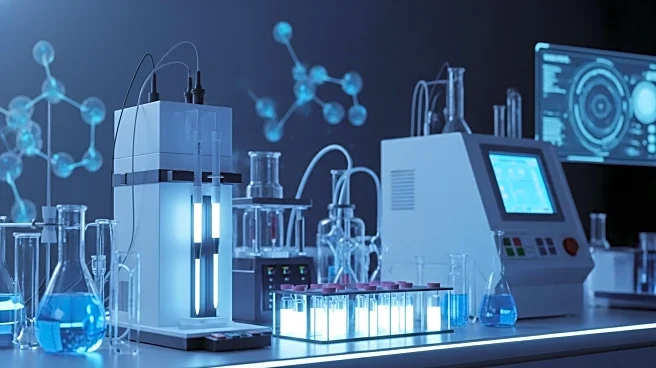What's Happening?
Biotechnology is advancing rapidly, with tools becoming cheaper and more accessible, raising concerns about safety and regulation. The spread of these technologies, once limited to experts, is now more widespread, weakening safety barriers and challenging existing regulations. Risks include unintended consequences from well-meaning experiments, such as engineered microbes escaping and disrupting ecosystems. The geopolitical implications are significant, as powerful nations may exploit biotechnologies for strategic advantages, exacerbating global inequalities. Concerns also extend to genome editing, which could inadvertently activate harmful genes, and the potential for eugenics. The CRISPR-Cas9 system, a leading gene-editing tool, exemplifies the power and risks of controlling genetic futures. Synthetic biology's concept of 'mirror life' poses additional risks, as these organisms could evade natural checks and balances, potentially leading to unpredictable and permanent effects.
Why It's Important?
The rapid growth of biotechnology presents both opportunities and risks. While advancements promise solutions to global challenges like faster vaccines and cleaner industries, they also pose significant safety concerns. The potential for engineered pathogens to disrupt ecosystems or public trust in biotech is substantial. Without robust international regulations, the risks of accidents or malicious use could overshadow the benefits. The geopolitical dynamics of biotechnology could deepen inequalities, as nations with strategic advantages capitalize on emerging markets. The ethical implications of genome editing and synthetic biology, including the risk of eugenics, require careful consideration. The balance between innovation and safety is crucial, as the consequences of a single misstep could be far-reaching.
What's Next?
Experts are calling for stricter containment measures and possibly a temporary ban on certain biotechnologies until society is ready to handle them responsibly. The development of international regulatory frameworks is essential to ensure safety and prevent misuse. Proposed safeguards include DNA sequence screening, designing organisms with 'kill switches,' and rigorous testing before broader release. However, these measures cannot guarantee safety, as human error remains unpredictable. The race to commercialize biotech may lead to downplaying risks, necessitating stronger oversight. The focus should be on responsible use and international cooperation to prevent the negative impacts of biotechnology from outweighing its benefits.
Beyond the Headlines
The ethical and cultural dimensions of biotechnology are profound, as it challenges traditional notions of life and raises questions about human intervention in natural processes. The potential for biotechnology to be weaponized underscores the need for ethical guidelines and international cooperation. The role of AI in biotechnology further complicates safety concerns, as it lowers the expertise needed for complex experiments, increasing the risk of misuse. The balance between innovation and ethical responsibility is critical, as the decisions made today will shape the future of biotechnology and its impact on society.










